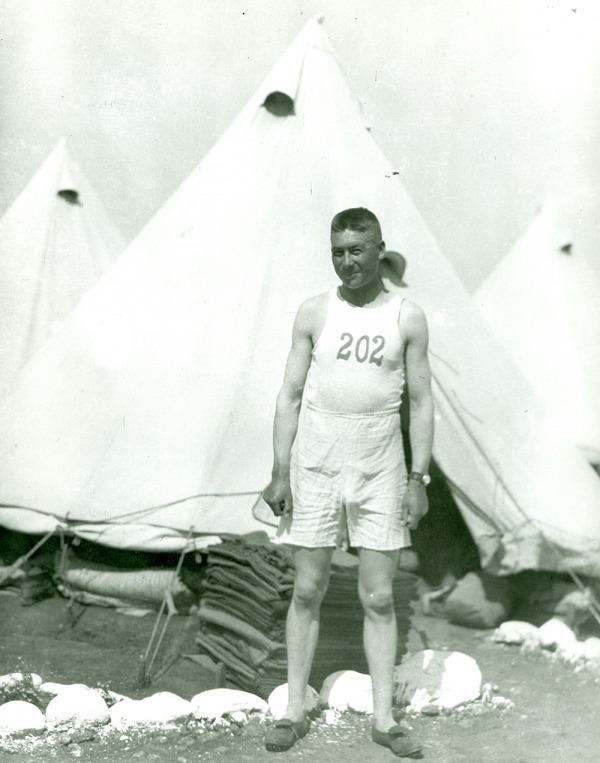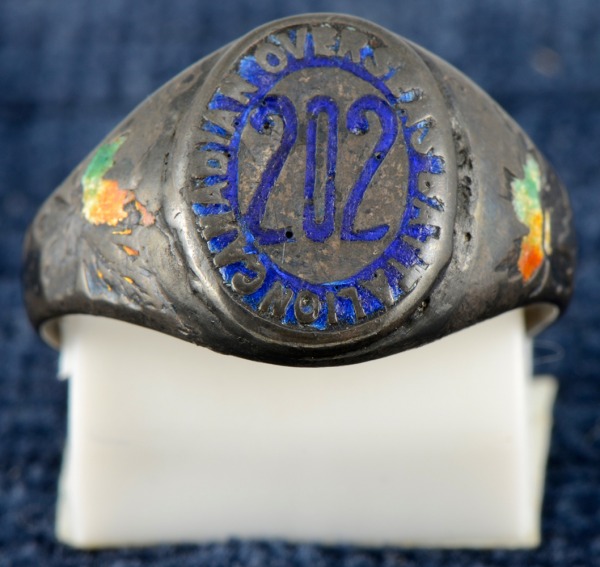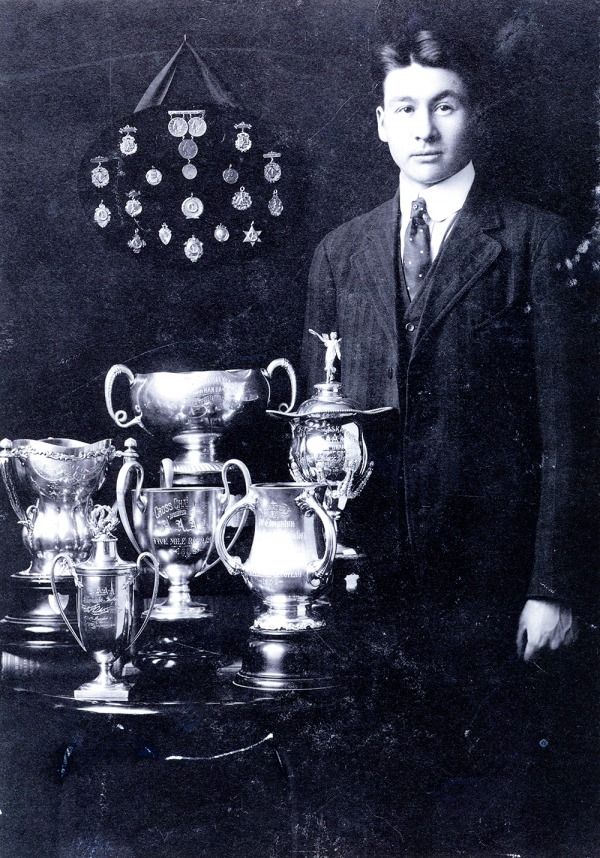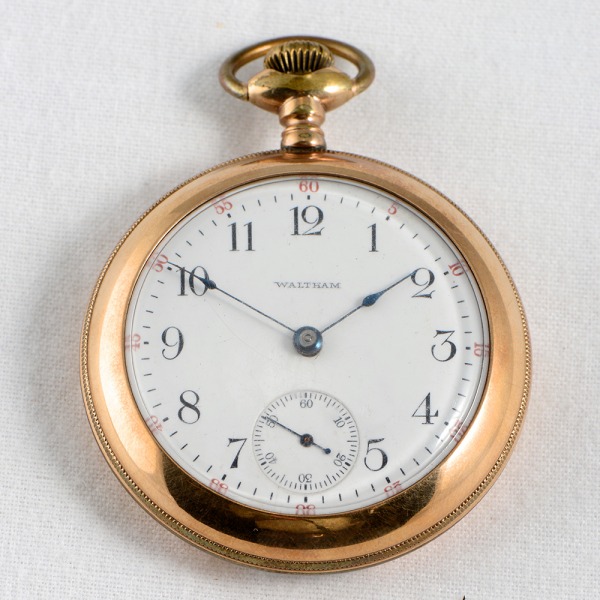Home | Military and Sport | Sport Veterans
Alex Decoteau
PreviousNext
Alex Decoteau was such an exceptionally talented Cree endurance running athlete that in the years preceding the First World War, race organizers began awarding him the trophies before the races actually began. But Decoteau was more than just an exceptional athlete. He repeatedly displayed commitment to public service, humility and integrity. In fact, Decoteau's career was dedicated to honouring his father's memory. He joined the Edmonton Police Force as Canada's first Aboriginal-Canadian police officer in 1909 and through perseverance rose rapidly through the ranks to Sergeant ultimately heading the West End Edmonton Police Office before the First World War broke out. Determined to achieve a status in the Cree community that was on a par with his father, Decoteau joined the Canadian Expeditionary Force, at first serving with the 202nd Infantry Battalion, later transferring into the 49th.
Decoteau's athletic achievements were legendary. In only his second road running race, he broke the Western Canada 5-mile record. In 1912, despite suffering from chronic leg cramps he finished just outside a bronze medal in the 5,000m Stockholm Olympic Games final. While stationed in England before serving the front, Decoteau won a race so comfortably that King George V who attended the event presented him with a gold pocket watch. In his second race in England, on arriving Decoteau was astonished to learn it was actually a cycle race; he borrowed a bicycle and won that too.
It was a sad irony that it was Decoteau's exceptional athletic talents that were to tragically end his life. In an attempt to circumvent some of the brutal conditions in the First World War, talented soldiers - runners - were required to literally 'run' between friendly positions and pass on important dispatches or the runner would go from an advanced position during an attack back towards the safety of friendly lines to tell higher officers what was going on in the battle area. Such a job was arguably the most dangerous of all the jobs because these 'runners' had to leave the safety and shelter of the trenches. Yet Decoteau preferred to keep the realities of his duties from his family so as not to worry them, and repeatedly displayed exceptional courage. A sniper's bullet sadly killed him at the Battle of Passchendaele in late 1917, just after he had written the following words to his sister: "Of course there's work to be done yet and I suppose will stay here till it is finished. Remember me to what few friends I've left."

Alex trained as a soldier at Camp Sarcee in Calgary, Alberta. In a letter to a friend he said "I'm game for whatever comes. Anything to help finish this D- War." His sense of civic duty and courage showed in his commitment to fight for Canada.
Collection: Saskatchewan Sports Hall of Fame and Museum

Alex enlisted as a private in the 202 Infantry Battalion, known as the Edmonton Sportsmen's Battalion. His contribution in serving in First World War was marked by a commemorative run and graveside ceremony at Ypres, Belgium.
Collection: Edmonton Police Service

The trophies and medals bear testament to Alex's prowess as a runner. He was one of the City of Edmonton's earliest track champions whose drive and passion led him to compete at the 1912 Olympic Games. Recognizing his commitment to excellence and his contribution to society, the City of Edmonton named a park in his name.
Collection: Edmonton Police Service

One of Alex's most treasured prizes was the gold pocket watch given to him by King George V after winning a five-mile race during a military sports day in England. He ran distances of one-half mile to 10 miles during his career, showing his strength and competitive nature.
Collection: Edmonton Police Service
Previous Next


